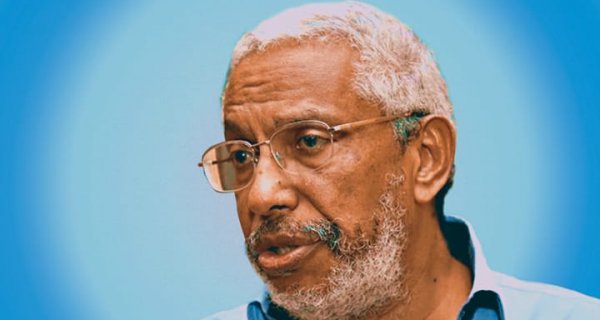Fernando Pacheco, who spoke to Lusa regarding the African Climate Summit, which began in Nairobi, said that the effects of climate change are already being felt in Angola, especially in the south, where episodes of lack of rain have been occurring. worsen in recent years.
Regarding the cyclical droughts that are experienced in southern provinces, such as Cunene or Namibe, he highlighted that this is a worsening of what was experienced before, as Angola has a great diversity of rainfall regimes and in the southwest, traditionally, it rains little .
“It is an area that can be considered semi-arid, but compared to other countries like Mozambique, we are in a much better situation. Even the phenomena of excess rain have no comparison”, said the expert.
Regarding government policies adopted to mitigate the effects of climate change, he considered that, “unfortunately”, it is not possible to say “that we are on the right track”.
In the agronomist's opinion, “large projects” are a solution that does not solve and can further worsen the problems, causing the destruction of ecosystems and ancestral ways of life.
As an example, he pointed out the Cafu canal, built to solve the problems of the drought in Cunene, but whose work has already presented several flaws, with the rains damaging the infrastructure less than a year after its inauguration, and the announced irrigation project that aims to replicate the São Francisco Valley, in Brazil.
“This project that is being talked about and which aims to transform itself into a new valley in São Francisco has very little to succeed because it is moving forward with a project without the necessary soil studies and much less involving the population”, criticized the agronomist.
“These are populations dedicated to pastoralism, carried out according to very rudimentary rules, but adapted to those conditions. There is no solution that will turn them into great farmers. What will happen is that farmers who are not from the region will settle there,” he declared.
For the engineer and co-founder of ADRA (Association for Rural Development and Environment), this would not be a problem if the project included local populations, “but that is not what has happened in Angola”.
Fernando Pacheco cited other experiences in semi-arid Brazilian regions that he considers to have better results, such as the construction of underground cisterns to collect and accumulate rainwater, defending “smaller and cheaper actions” and using simple technology.
“We don’t have the capacity to manage large-scale projects,” he said, pointing to the case of Biocom, a company with Angolan and Brazilian capital, which supplies around a third of the country’s sugar needs, which he considered “a good project from the point of view of view of effectiveness”, but a “disaster” in terms of efficiency, surviving only with injections of money from the State.
He also warned of the need to preserve ecosystems, which “if not well cared for, will present very serious problems” and which he considered a pressing issue for intertropical Africa.
“When we talk about forests, it is not just the devastation caused by large economic interests, we are also talking about the use of biomass by the population who live in poverty and have no other sources of energy”, he highlighted.
The African Climate Summit brings together, in Kenya, Heads of State and Government from the African Union and the United Nations, as well as representatives of civil society. Angola is represented by the vice-president of the Republic, Esperança da Costa.
The first Africa Climate Summit, led by Kenyan President William Ruto, with the support of the African Union, will address the growing exposure to climate change and the associated costs globally and in Africa in particular. Under the motto “Driving green growth and climate finance solutions for Africa and the world”, the Forum will also focus on showcasing innovative green growth and climate finance solutions in Africa and the world.







